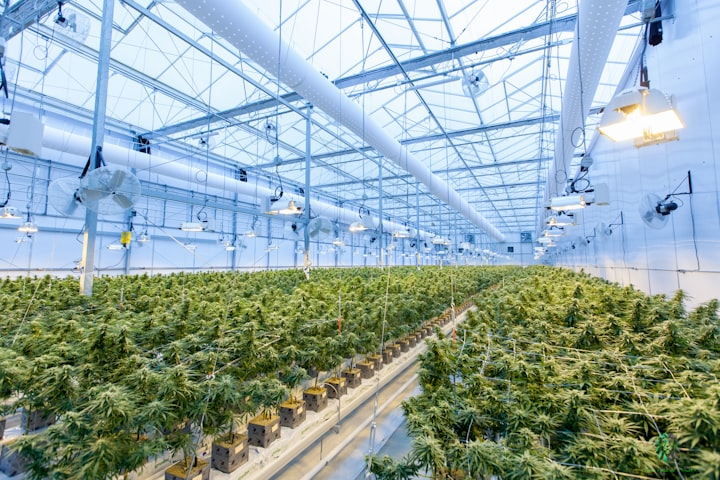Delta 8 is the popular THC making the rounds with so many people preferring them to CBD products. However, Delta 8 is not the only THC, as there are hundreds of cannabinoids recorded in medical journals with varying effects. Two other popular THCs are Delta 9 and Delta 10. While Delta 9 is frowned upon by the authorities, Delta 8 and 10 are legally accepted as recreational drugs.
Both Delta 8 and 10 are similar to Delta 9 THC with similar effects. The key difference between these molecules has to do with the varying degrees of potency. In this guest post, we will review Delta 8 Vs. Delta 10 and all you need to know about them.
What is Delta 8?
Delta 8 is a psychoactive cannabinoid present in cannabis plants. This cannabinoid is a Delta 9 Tertrahydroncannabinol isomer with different properties such as analgesic, neuroprotective, antiemetic, orexigenic, and anxiolytic properties.
What is Delta 10?
There are hundreds of cannabinoids, and Delta 10 is only one out of many. This cannabinoid is found in hemp and cannabis plants. Although it is a THC variant, it is different from major THCs, CBD, and CBG drugs. The reason for this is because Delta 10 only occurs in naturally low concentrations at the early stages of plant development. So cultivators have to extract it before the plant blooms, and it takes a lot of effort to extract.
What then are the similarities and differences between Delta 8 Vs. Delta 10?
The Similarities & Differences of Delta 8 and Delta 10
The first thing we want to explore is the similarities between the two. Delta 8 THC and Delta 10 THC maintain the internal physiological and chemical balance between the body and the brain.
These two cannabinoids bind to CB1 receptors located in the brain (Central Nervous System). Delta 8 and Delta 10 compounds also interact with CB2, receptors though the level of interaction with CB2 and the resultant binding effects remains unclear as more research still needs to be done. While researchers know more about Delta 8, much is unknown about Delta 10 because it is only a recent discovery.
They can both get you high
Delta 8 and Delta 10 THC compounds can get you high, especially if you take them in large doses. However, the intensity of highness is not the same. Delta 10 can get you mildly high, but Delta 8 is more potent, but Delta 9 is more potent than the duo. The highness they cause is a result of their psychoactive properties. While Delta 8 and 10 have very few side effects, Delta 9 causes more intense reactions because of its exceedingly high psychoactive properties, leading to paranoia, anxiety, discomfort, depression, migraines, and many other side effects.
Fortunately for Delta 8 and Delta 10 users, these compounds do not cause the same adverse side effects. When you take Delta 8 THC, it gives you a mild feeling of elation. You also feel slightly euphoric, and if you suffer from a poor appetite, merely using Delta 8 will improve your eating habit. For Delta 10 THC, the highness is very mild and not as strong as what is obtainable with Delta 10. So Delta 8 has a mode energizing effect while Delta 10 has a weaker potency.
What we do know is that Delta 10 causes heightened focus, energy, and creativity. We also know that Delta 8 promotes relaxation and aids sleep without causing side effects synonymous with conventional sedatives.
Similar Chemical Structure
The chemical structure of Delta 8 is similar to Delta 10, with the difference being the double binding placement potential. Even though they both possess the same double bond molecular structures like Delta 9, they have significantly different chemical structures in the way they interact with the CNS receptors. Delta 8 and Delta 10 have milder interactions with CB1 and CB2 receptors making them less intoxicating.
Sources
Based on their sources, they are very different. Delta 8 is sourced from the hemp plant but not highly concentrated in hemp strains. So to get a sufficient amount of the compound, manufacturers of Delta 8 products obtain it from CBD through a carefully curated conversion process. This process is called the isomerization process. As for Delta 10 THC, it is found at the early stages of developing Cannabis plants in little concentrates. Due to their small concentrates, it is very difficult to extract them directly through the natural process from plants. For this reason, manufacturers use Carbon and Vitamin C additives and derivatives to create Delta 10.
What are the potential benefits of using Delta 8 and Delta 10?
Many people who use these compounds use them to relax and loosen up. However, they have certain therapeutic benefits. These benefits have influenced policymakers to reduce restrictions on their manufacturer and use. Delta 8
- Reduces Anxiety
- Helps you relax
- Serves as a pain reliever
- Improves the brain function
- Appetite improver
- Creates feelings of euphoria
- Improves sleep
- Reduced the risks of bone disease.
What about Delta 10 THC benefits?
- Improves alertness
- Boots energy
- Improved creativity
- Gives a much smoother high
Are there any side effects associated with Delta 8 and Delta 10?
Delta 10 was only discovered not too long ago, so researchers know very little about them. This includes the possible side effects of using it. For Delta 8 THC, on the other hand, there is a large body of data for it, so we know that some of the side effects include
- Mouth dryness
- Red eyes
- Drowsiness
- Mild anxiety and disruption
- Fatigue
Do note that these side effects vary from user to user. Some users may feel all or none of these side effects. Furthermore, taking Delta 8 of any Cannabinoid in large dozes may cause more pronounced side reactions.
Is Delta 10 THC legal?
The answer to this question falls into a grey area because it was only recently discovered, unlike Delta 8 THC. Delta 8 is legal at the federal level and in most states. Delta 10 is legal at the federal level, while many states prohibit it completely. In CBD products containing both, the extracts should be hemp, not marijuana-based.







Comments
There are no comments for this story
Be the first to respond and start the conversation.